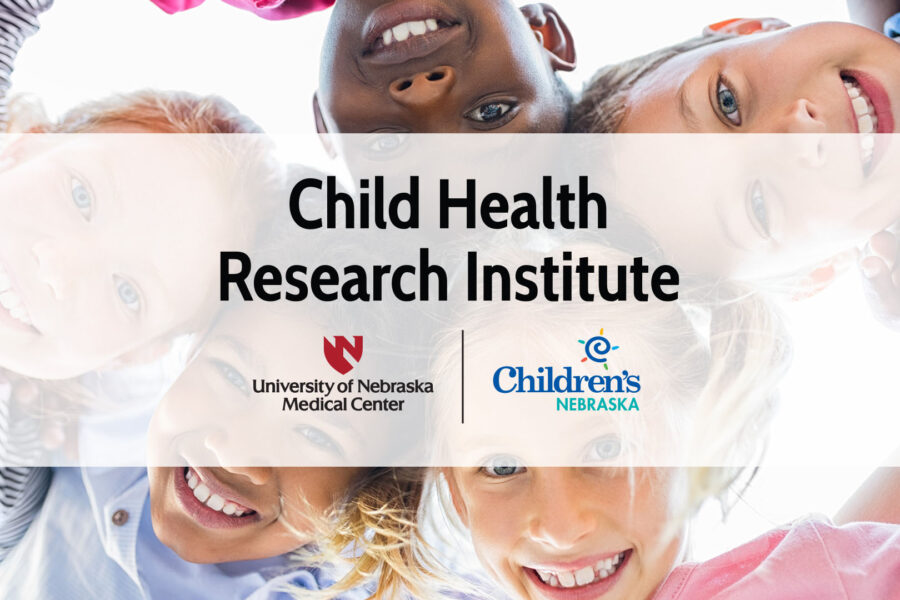The Child Health Research Institute, a partnership between UNMC and Children’s Nebraska, is offering two pilot grant requests for application opportunities due April 15.
Artificial Intelligence/Machine Learning (AI/ML) Pilot Grant
This grant supports the use of artificial intelligence and machine learning in research to develop novel transformative strategies and computer automation to integrate, extract and interpret data (electronic health record data, socio-economic status, exposome, genome, epigenome, transcriptome, proteome, metabolome, microbiome, phenome), using data sets from pediatric and/or perinatal cohorts.
The investigative teams for this request for applications are desired to be multi-disciplinary, leveraging CHRI, Children’s Nebraska and University of Nebraska system expertise in artificial intelligence and machine learning child health and informatics. Investigative teams will design/develop intelligent and innovative algorithms and novel artificial intelligence and machine learning-based computational strategies followed by application of the developed artificial intelligence and machine learning tools to complex, heterogenous data sets pertinent to the population. This request for applications strongly encourages collaboration, coordination, data and resource exchange among researchers studying child health, and collaboration with external institutions (government, academic or industry) is encouraged. Prospective applicants are strongly encouraged to contact CHRI staff and leadership to discuss their proposed projects.
Along with artificial intelligence and machine learning proposals, CHRI encourages applications that focus on pediatric cancer. Reducing health impacts in cancer is one of UNMC’s primary goals. Advances in cancer are complex, and the use of artificial intelligence and machine learning and teams with a variety of skills to identify novel strategies to address them will be necessary to impact outcomes.
CHRI anticipate two awards will be given, with one specifically focused on pediatric cancer. Awards will be for up to $50,000 for one year. A no-cost extension for a second year is possible.
Implementation Science Pilot Grant
The purpose of the Implementation Science Pilot Grant is to identify, develop and/or test strategies for the adoption, adaptation, integration and sustainability of evidence-based interventions, practices, programs, tools, treatments, guidelines and policies to improve child health outcomes. Partnerships with key stakeholder groups (patients, providers, organizations, systems and communities) often are essential to this type of research. Studies that promote the implementation of evidence-based interventions among underrepresented communities are encouraged. Additionally, projects that explore the de-implementation of the use of practices that are ineffective, unproven, low-value or harmful also are welcome.
CHRI anticipates two awards will be given, with one specifically focused on pediatric cancer. Awards will be for up to $50,000 for one year. A no-cost extension for a second year is possible.
Eligibility
All faculty who are full members of CHRI are eligible. Visit CHRI’s membership page for an application. Visit the CHRI member portal for full request for applications information.
Application deadlines for both grants
- Application submission: April 15 by 5 p.m.
- Notice of grant award: June 30
